6 Tips for Optimizing Performance on a Ketogenic Diet

It is not uncommon for those following a ketogenic diet to report a decline in their performance upon initiation of the diet. Though, once keto-adapted, many of these decrements tend to disappear. However, there are still some cases where performance can become impaired and having effective techniques to overcome these situations is important! During graduate school, I was fortunate enough to conduct an experiment with CrossFit athletes who were on a ketogenic diet. From those experiences, as well as adopting a ketogenic lifestyle myself, I have learned several strategies that can be used to ease the process and allow for optimizing performance on a ketogenic diet:
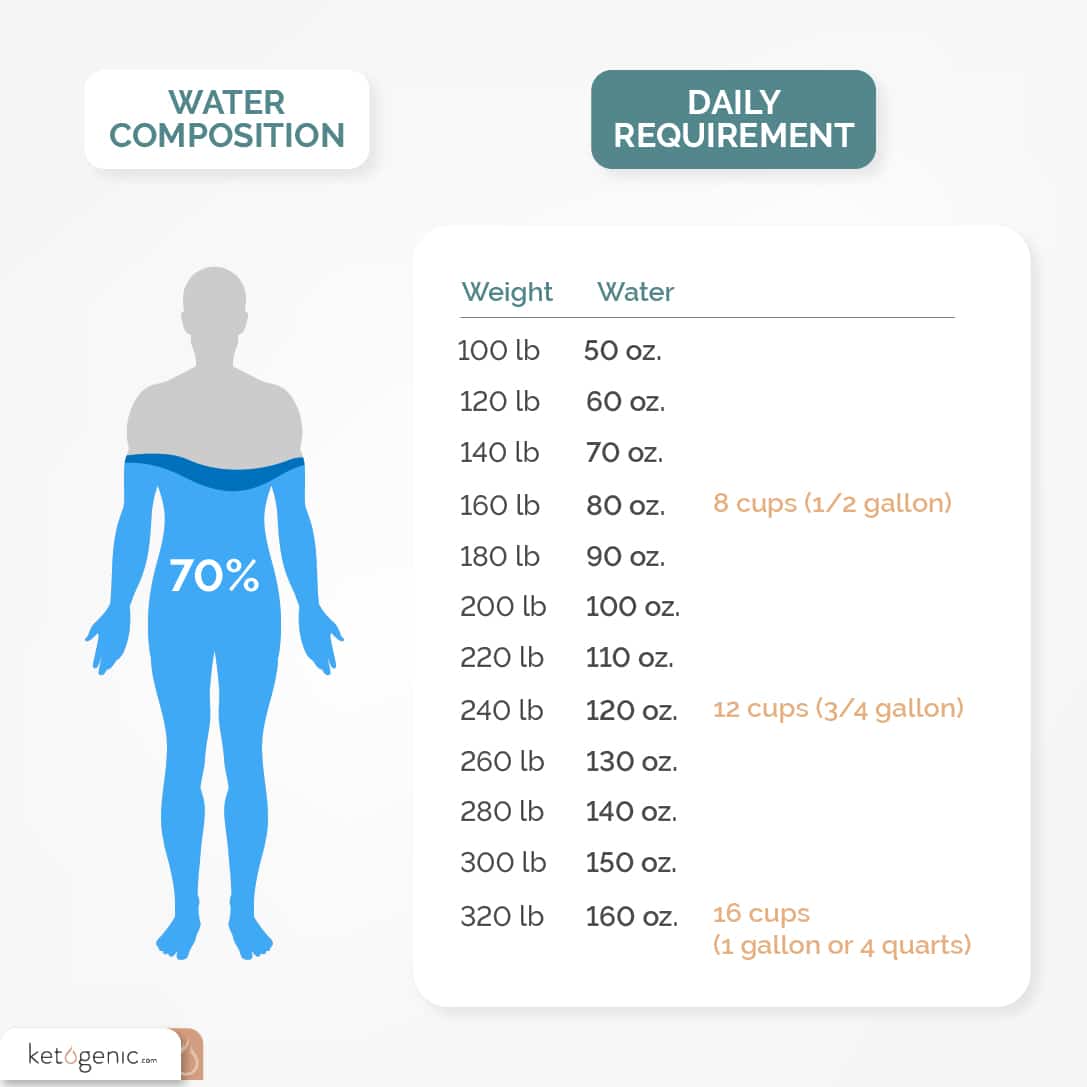
1. Stay Hydrated
When following a ketogenic lifestyle, insulin levels tend to be lower due to decreased carbohydrate intake. Low insulin levels cause the kidneys to excrete more water and sodium, which can put ketogenic athletes at an increased risk for dehydration if they are not consuming adequate amounts of water throughout the day.
- Fix: Optimizing performance on a ketogenic diet requires that you drink a glass of water upon waking.
- Add a splash of fresh lemon juice for the added vitamin c and antioxidants, and a splash of apple cider vinegar for its profound health benefits.
As a general rule, consume AT LEAST ½ your body weight in ounces per day. For example, if you weigh 150 lbs., you should drink at least 75 ounces (150/2 = 75) of water per day (more if you work out and sweat heavily!). That would be about 4.5, 16.9 fl oz. water bottles per day.
2. Replenish Electrolytes
As previously mentioned, lower insulin levels can lead to increased water and electrolyte excretion. Replacing these electrolytes is extremely important, in order to prevent things like headache, brain fog, fatigue, and muscle cramps, as well as to allow for maximal physical and mental performance.
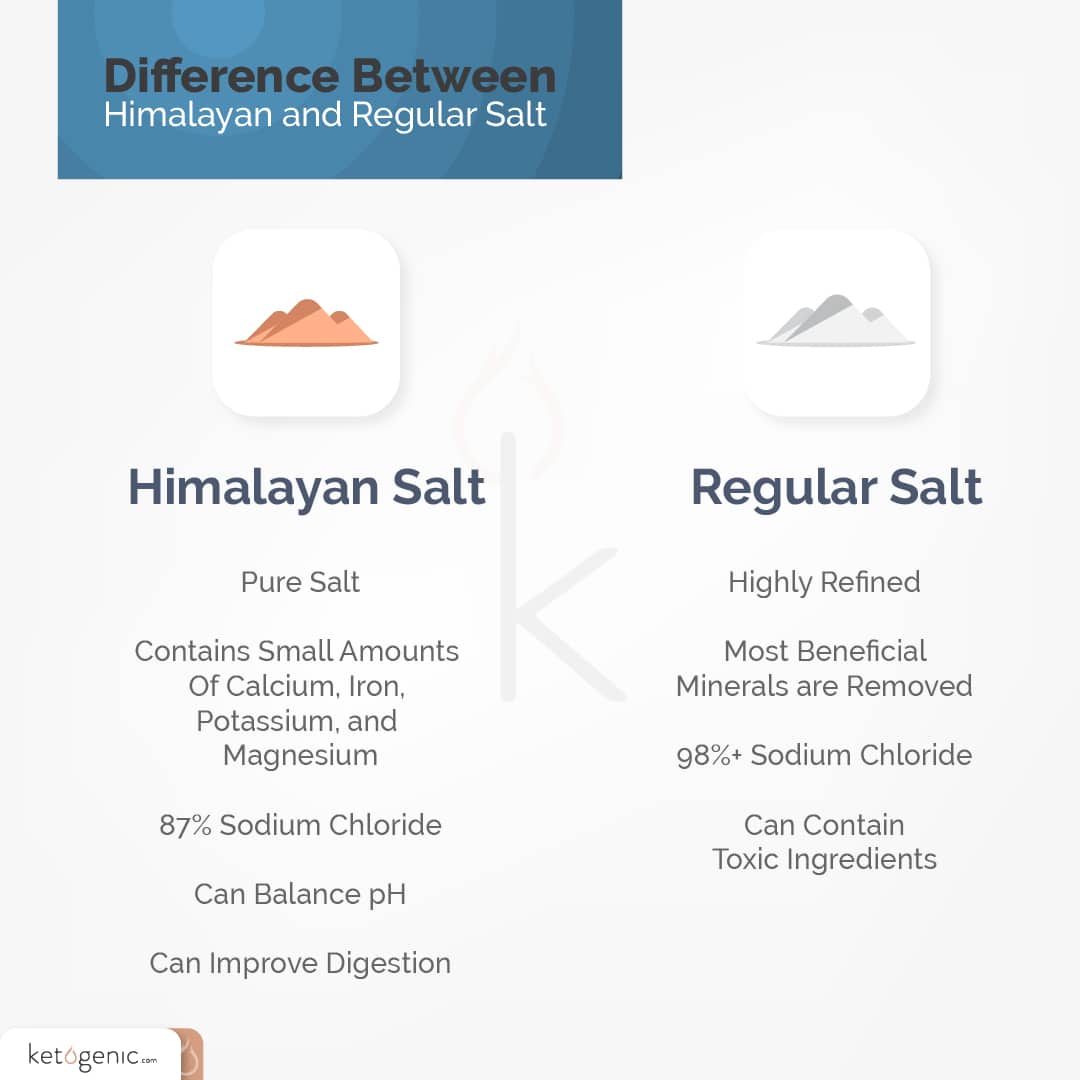
Fix: Add sea salt to your water
- Avoid table salt, as it is stripped of many of its beneficial nutrients.
Tips:
- Keep a Himalayan sea salt grinder in your gym bag at all times!
- Use a keto-friendly electrolyte supplement
- Use keto-friendly water enhancers that contain electrolytes
- Try a ketogenic pre-workout Snack:
- This may sound like a weird combination, but it is one of my favorite pre-workout snacks that provides a good dose of the necessary electrolytes: potassium, magnesium, and sodium. Don’t knock it ‘till you try it!
- ½ avocado (potassium)
- 1 tbsp. almond butter (magnesium)
- Dash of Himalayan sea salt (sodium)
- This may sound like a weird combination, but it is one of my favorite pre-workout snacks that provides a good dose of the necessary electrolytes: potassium, magnesium, and sodium. Don’t knock it ‘till you try it!
Learn more about the importance of electrolytes on a ketogenic diet.
3. Consume Enough Fat & Adequate Protein
Fat is FUEL! Consuming plenty of healthy fats is essential to keep your body energized and your brain focused  throughout the day and during your workouts. Additionally, adequate protein intake is necessary for improving muscle repair and recovery, as well as supporting immune function.
throughout the day and during your workouts. Additionally, adequate protein intake is necessary for improving muscle repair and recovery, as well as supporting immune function.
Fix: MCTs during pre-workout
- MCT oil (or powder) is a great addition to any pre-workout regimen and provides quick and clean energy. Unlike other fats, MCTs are quickly absorbed and transported directly to the liver, where they are metabolized, released for immediate energy, and may even boost ketone production. [1]
- One of the most popular ways to incorporate MCTs into a pre-workout is to blend one serving with a cup of coffee or caffeinated tea. The caffeine in the coffee or tea will add an additional boost that has been proven time and time again to improve athletic performance. [2] [3]
Mini Fat Bombs
Another one of my favorite pre-workout snacks (and nighttime treats) is mini fat bombs. Fat bombs are a great way to get a quick dose of healthy fat and energy before your workout and they can be made in a variety of ways to fit anyone’s taste buds! I like to make mine with a combination of MCT oil, butter, coconut oil, and some other keto-friendly superfoods. You can eat them alone or drop a few into your pre-workout coffee for some extra flavor and energy!
Importance of Protein
Consuming adequate protein is essential for all athletes, independent of the type of diet they follow. However, the amount of protein necessary to elicit benefits is based on a variety of factors, including individual body composition, type of sport, intensity and frequency of training, and specific goals. There has been a lot of controversy surrounding the ideal protein intake for a keto-adapted athlete. As previously stated, protein needs are highly individualized for optimizing performance on a ketogenic diet and may need to be adjusted on a continuous basis. In general, a good starting point is to set your protein intake to around 20-25% of total calories, which comes out to around 1.2-1.7 grams per kilogram of body weight for most people.
 4. Trust the Process
4. Trust the Process
Becoming keto-adapted or “fat-adapted” takes time. For some it may take weeks and for others it could take months. There is no clear-cut point that defines when someone is completely fat-adapted. However, some of the common signs include sustained and increased energy, enhanced mental clarity and focus, reduced hunger, improved performance, and much more.
Keto-adaptation
When starting a ketogenic diet, your body will undergo a transition or adaption period that is necessary to allow the switch from burning carbohydrates for fuel to burning fat for fuel. It is important to realize that your body needs some time to adjust and you may notice a dip in performance during this period. Don’t worry, this is completely normal and will soon pass. You need to be patient, positive, and push through those initial workouts. Make sure to follow the tips in this article to ease the adaptation process, and you will become a fat burning machine in no time!
5. Exogenous (Supplemental) Ketones
There has been a huge surge in the number of ketone supplements that have hit the market in the past year. As we know, ketones are an ideal fuel source for the body and brain, with many people referring to them as a “super fuel.” The science behind exogenous ketones is still emerging, but the effects on performance, therapeutics, and cognitive applications are showing great promise.
Supplemental ketones may aid in:
- The keto-adaptation phase: making the process of keto adaptation easier and possibly eliminating the “keto flu.”
- Exercise motivation & performance: taken as a pre or intra-workout supplement, exogenous ketones may boost neurological drive to perform, reduce fatigue, and improve output and stamina during athletic activity. [4] [5]
- Increased muscle protein synthesis: by decreasing the breakdown of leucine, the primary amino acid responsible for muscle growth and preservation. [6]
- Enhance brain metabolism and mitochondrial biogenesis: by providing a more efficient, alternative fuel source and promoting neuroprotection against cellular injury. [7] [8]
- Appetite regulation: aiding in weight and fat loss to optimize body composition, leading to greater efficiency during exercise. [9]
- Reduced Inflammation: leading to enhanced recovery and overall increased health. [10]
If you are planning on experimenting with exogenous ketones for optimizing performance on a ketogenic diet, I encourage you to thoroughly research the product you are purchasing and make sure that it is third-party-tested and uses high quality materials. Take a look at this previous article, To Ketone or Not to Ketone: Mineral Salts, [11] for a better understanding of the science behind exogenous ketones, and to cross-reference popular companies that are producing them. Also, check out the book, The Ketogenic Bible, which includes a full chapter dedicated to the newest research and application of supplemental ketones.
6. Consume Carbs Strategically. . . If At All
The research is still young, but there has been more and more interest in the various types of ketogenic diets, especially throughout the athletic population. The two main variations include the cyclic ketogenic diet (CKD) and the targeted ketogenic diet (TKD). The CKD follows the same principles as a standard ketogenic diet (SKD) with the addition of carbohydrate “refeeds” one or two days a week. In this article, we will focus on the TKD, explained in detail below. However, research in all areas of CKD and TKD is severally lacking, and there is definitely a need to investigate the roles that these variations may play in different types of athletes, and sports in general.
TKD (Targeted Ketogenic Diet)
Just like a CKD, the TKD follows the same principles as an SKD, with the addition of carbohydrates incorporated around the workout. At the moment, the TKD is based on anecdotal experience, rather than scientific research, and it is not yet known whether the potential benefits of implementing a TKD come from psychological or physiological changes, or even both. TKD is highly individualized, meaning that every person will vary in the amount, type, and specific timing of carbohydrate consumption needed. Nonetheless, the TKD may benefit athletes participating in activities such as CrossFit, MMA, HIIT, and other high intensity sports.
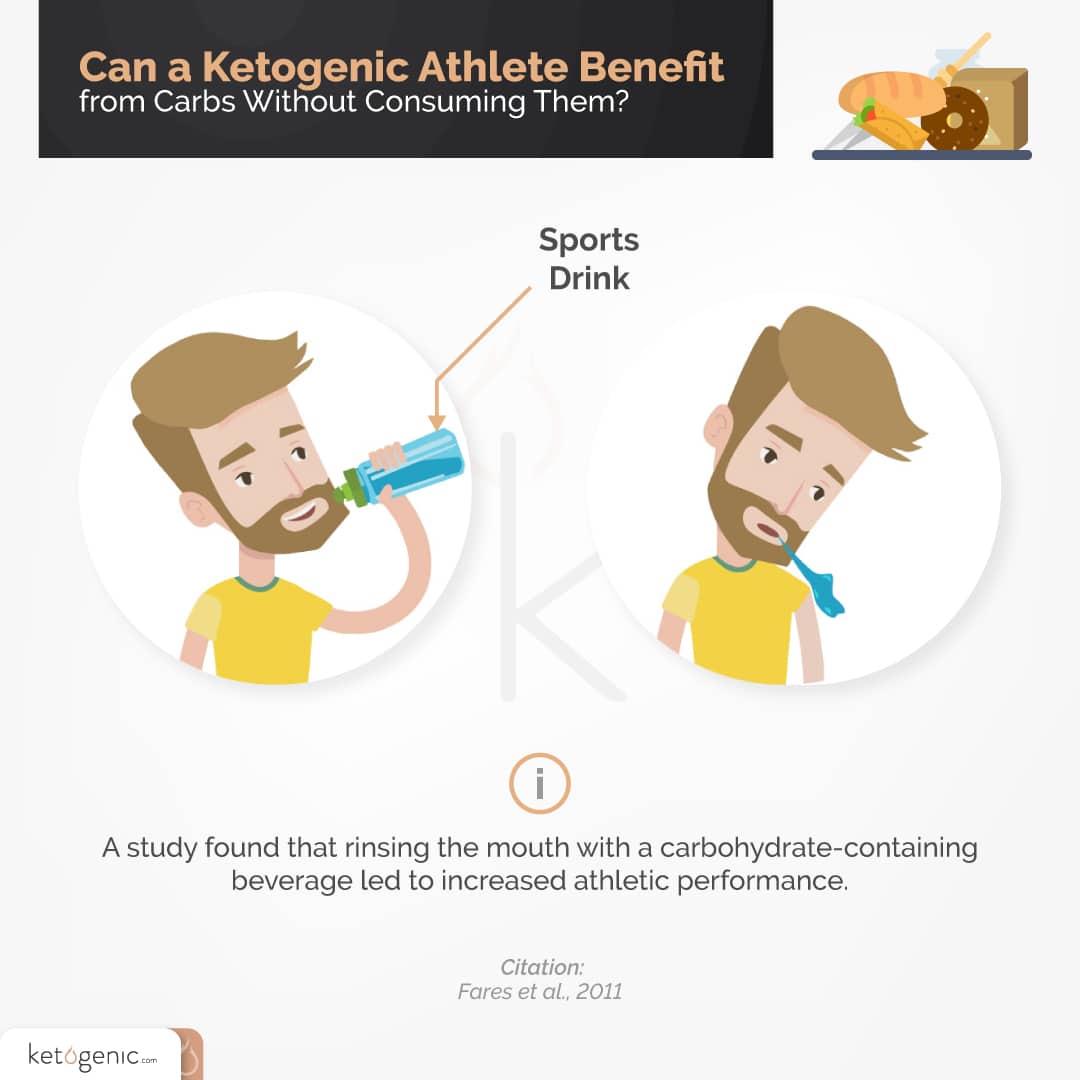
“The Carb Rinse”
Another potential strategy for optimizing performance on a ketogenic diet is the implementation of the “carb rinse.” This involves taking a sip of a beverage containing carbohydrates, such as a Gatorade sports drink, swishing it around in your mouth for 5-10 seconds and then spitting it out. Several studies have found improved performance during moderate to high intensity exercise using this method. The “carb rinse” is thought to activate receptors in the mouth that connect to reward areas in the brain, leading to a reduction in perceived exertion and subsequent increase in effort and motivation to perform. [12]
If you are planning on experimenting with a TKD, here are a few tips to begin:
- Make sure you are fully keto-adapted (this can take weeks to months, depending on the person).
- Try using the “carb rinse” technique first.
- Then, start by implementing 15–20 grams carbohydrate pre-workout to assess tolerance and energy levels. Here are a few examples:
- Consume half a banana (maybe add a small amount of nut butter) 30 minutes or so prior to your workout.
- Consume a fast-absorbing carb source, such as gummy bears or a rice cake, 10-15 minutes pre-workout.
Keep track of your performance, mood, hunger levels, and ketone production (optional) throughout the initial experimental phase.
A Few Other Suggestions…
- Explore the use of other supplements, such as Creatine, BCAAs, HMB, and others.
- Experiment with intermittent fasting and/or training in a “fasted state.”
- Remember what your main goal is (i.e., fat loss, performance increase, overall health).
- Focus mainly on whole food sources for your daily nutrient intake.
- Get enough sleep!
Conclusion
It is essential to remember that, when adopting a ketogenic diet, you may initially experience symptoms that impair your performance. However, if you follow the guidelines and tips outlined above, you will likely find that optimizing performance on the ketogenic diet is a breeze!
References
Misell, L. M., Lagomarcino, N. D., Schuster, V., & Kern, M. (2001). Chronic medium-chain triacylglycerol consumption and endurance performance in trained runners. Journal of sports medicine and physical fitness, 41(2), 210.
Wiles, J. D., Bird, S. R., Hopkins, J., & Riley, M. (1992). Effect of caffeinated coffee on running speed, respiratory factors, blood lactate and perceived exertion during 1500-m treadmill running.British Journal of Sports Medicine, 26(2), 116-120.
Doherty, M., & Smith, P. M. (2005). Effects of caffeine ingestion on rating of perceived exertion during and after exercise: a meta‐Scandinavian journal of medicine & science in sports, 15(2), 69-78.
Cox, P. J., Kirk, T., Ashmore, T., Willerton, K., Evans, R., Smith, A., … & King, M. T. (2016). Nutritional ketosis alters fuel preference and thereby endurance performance in athletes. Cell metabolism, 24(2), 256-268.
Peter Attia. “My Experience with Exogenous Ketones.” The Straight Dope on Cholesterol – Part I -, Peter Attia, 12 June 2018, eatingacademy.com/personal/experience-exogenous-ketones.
Nair KS, Welle SL, Halliday D, Cambell RG. Effect of β-hydroxybutyrate on whole-body leucine kinetics and fractional mixed skeletal muscle protein synthesis in humans. J Clin Invest. 1988;82:198–205.
Rho, J. M., & Rogawski, M. A. (2007). The ketogenic diet: stoking the powerhouse of the cell. Epilepsy currents, 7(2), 58.
Gasior, M., Rogawski, M. A., & Hartman, A. L. (2006). Neuroprotective and disease-modifying effects of the ketogenic diet. Behaviouralpharmacology, 17(5-6), 431.
Paoli, A., Bosco, G., Camporesi, E. M., & Mangar, D. (2015). Ketosis, ketogenic diet and food intake control: a complex relationship. Frontiers in psychology, 6.
Youm, Y. H., Nguyen, K. Y., Grant, R. W., Goldberg, E. L., Bodogai, M., Kim, D., … & Kang, S. (2015). The ketone metabolite [beta]-hydroxybutyrate blocks NLRP3 inflammasome-mediated inflammatory disease. Nature medicine, 21(3), 263-269.
“To Ketone or Not to Ketone: Mineral Salts.” Ketogeniccom, 2 Aug. 2018.
e Silva, T. D. A. (2014). Can carbohydrate mouth rinse improve performance during exercise? A systematic review. Nutrients, 6(1), 1.




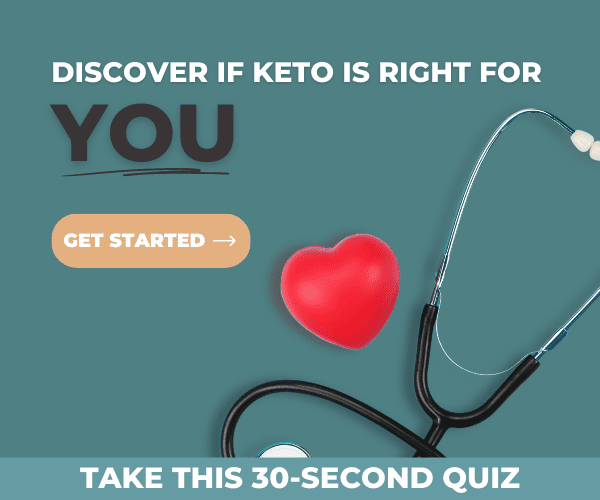


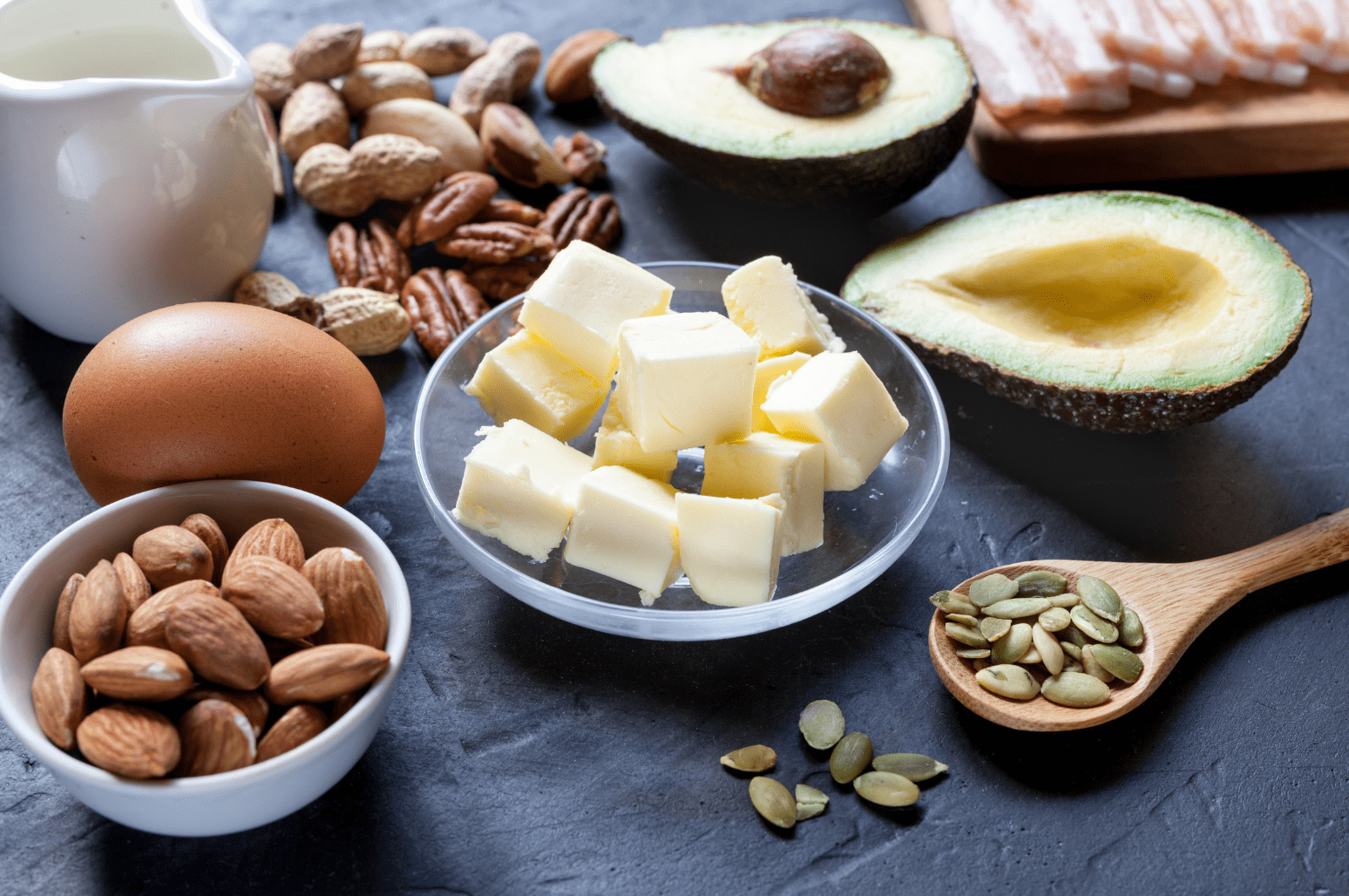
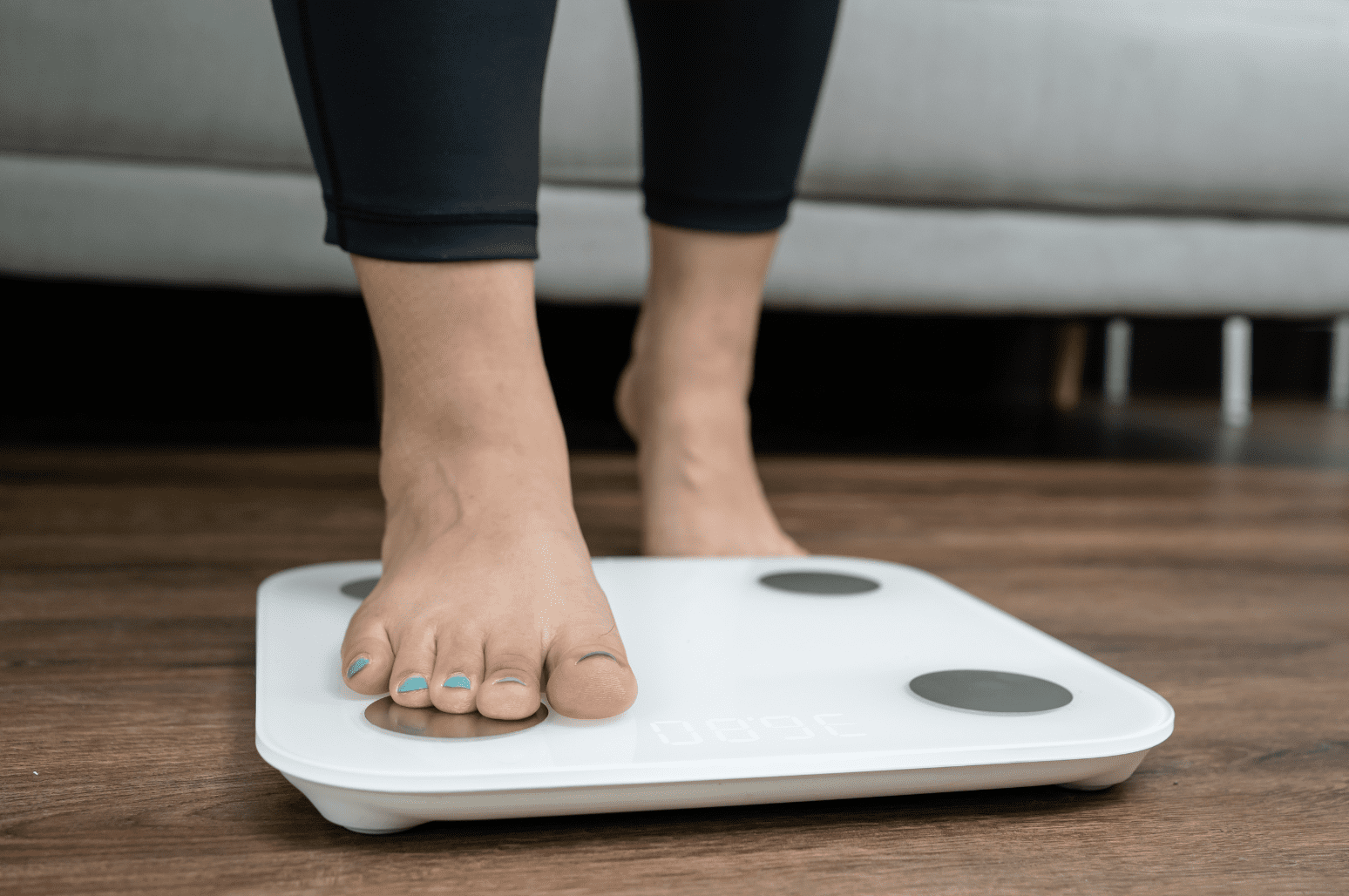



The goal of the keto diet is to get the body producing ketones– a fundamentally different energy source than the carbohydrates and fats your cells typically use for energy. It can take several days of ketogenic eating before the body starts to produce ketones. And the time it takes to get into ketosis varies between individuals. Here is everything you need to know about the ketogenic diet.